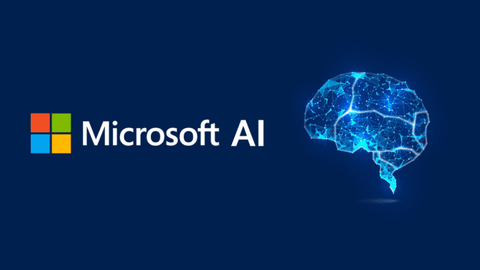Microsoft is set to unveil MAI-1, a new large-scale AI language model, poised to compete with Google’s Gemini and OpenAI’s GPT-4. Spearheaded by Mustafa Suleyman, former Google AI leader and recent CEO at Inflection AI, MAI-1 represents a solid step forward in Microsoft’s AI capabilities that showcases the company’s plans to advance state-of-the-art artificial intelligence technology.
What’s Happening & Why This Matters
Microsoft’s initiative marks a bold stride in AI development, introducing MAI-1 as a strong chatbot challenger. With approximately 500 billion parameters, MAI-1 is designed to be more complex and capable than many existing models, including Microsoft’s earlier AI endeavors. This MAI-1 demonstrates Microsoft’s ambitions to lead the AI revolution, not just participate.
MAI-1 also diversifies Microsoft’s AI portfolio beyond its collaborations with OpenAI. MAI-1 represents a in-house development that could redefine Microsoft’s fortunes in AI and better position itself as a direct competitor to rivals Google, OpenAI, and Nvidia.
MAI-1 has great potential and capabilities:
- Technical Advancements: The technical prowess of MAI-1, with its massive parameter count, places it among the most advanced AI models, potentially rivaling GPT-4’s rumored trillion-parameter setup. This advancement is supported by substantial investments in computing power and training data, utilizing Nvidia GPUs and a mix of proprietary and public datasets.
- Dual Approach in AI Strategy: Microsoft is adopting a dual approach by focusing on both smaller, locally run models for mobile devices and large, cloud-based models for more complex computations. This strategy mirrors broader industry trends, where companies like Apple are also exploring similar advancements.
- Innovation and Competition: MAI-1’s introduction will spur innovation and elevate competition among leading tech companies, pushing them to further innovate in AI technologies.
- Potential Applications: While the exact applications of MAI-1 are still being defined, its capabilities could revolutionize sectors like healthcare, finance, and customer service by providing more accurate predictions, automation, and customer interactions.
“MAI-1’s development underlines a significant shift in Microsoft’s AI strategy, emphasizing independence and innovation in the rapidly evolving AI landscape. This could catalyze a new era of AI competition and collaboration within the tech industry.”
Dr. Alex Turner, AI researcherTF Summary: What’s Next
As Microsoft gears up to possibly showcase MAI-1 at its upcoming Build developer conference, the tech world is watching closely. The successful deployment of MAI-1 could not only enhance Microsoft’s reputation as a leader in AI but also set new benchmarks for what AI can achieve in practical applications. The future of AI at Microsoft appears robust, with MAI-1 at the forefront of this transformative journey, potentially reshaping how businesses and consumers interact with technology.


